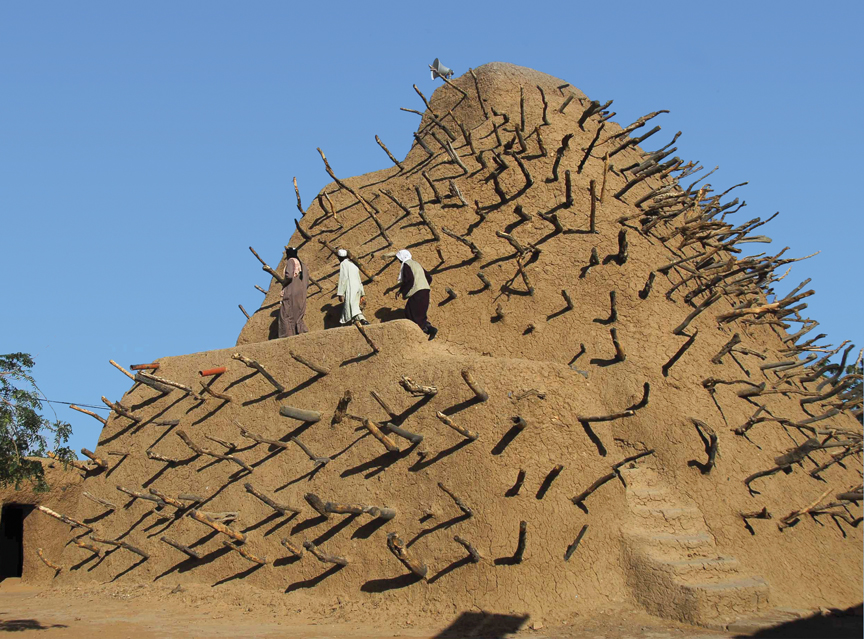Muhammad Ture was a politician, a ruler, a conqueror and a businessman. In the late 15th century, he used his considerable skills to expand the Songhai Empire, making it the largest country in West Africa’s history. At its peak, the empire stretched from the Atlantic Ocean east to what is now Niger.
He led the way for Africa to expand trade with Europe and Asia, and made Islam a key component of his governing strategy. He became known as Askia — “forceful one” — and is remembered to this day as Askia the Great.
He came to power through will, circumstance and force. When Songhai King Sunni Ali Ber died, his chosen successor refused to convert to Islam, prompting a rebellion by members of the Army. A bloody battle followed in 1493 involving 150,000 Soldiers. The victorious Gen. Muhammad Ture became the new king, and he took the name Askia.
King Askia began establishing a sophisticated bureaucracy in Timbuktu never before seen in the region. His reforms included formal trade regulations and policing of established trade routes.
To keep the followers of the former Sunni dynasty at bay, Askia courted the Muslim intellectuals of Timbuktu, acting as their benefactor and encouraging their scholarship. In doing so, he kept them in his government but away from his power.
He divided the empire into four regions and appointed a viceroy to govern each one. Along the way, he stacked the government with his relatives. He further consolidated his power by marrying the daughters of his vassal chiefs, and in turn, marrying his own daughters off to men of authority. In his kingdom, most of the prominent families became his kin.
The king built two strong armies along with a reserve unit. He commissioned fleets of ships for war, protection and commerce, stationing his main naval fleet in the center of the Niger River.
Under his rule, his engineers built harbors and dug canals. He set standards for weights and measures for his kingdom. He encouraged the study of science to the point that his astronomers were among the best in the world.
But his rule came at a cost. His advancements and vast bureaucracy were expensive, requiring a growing class of new aristocrats. They, in turn, relied on forced labor and slavery to produce food, supplies and weapons. And Askia was not a gentle ruler; anyone who threatened his authority was executed.
Askia outlived his ability to govern. He went blind as he got older, keeping it a secret from his kingdom for years. His sons overthrew him, exiling him to an island in the Niger River. He was eventually allowed to live out his final years at the king’s palace, where he died at age 96. His descendants ruled for 50 years before civil wars from within, and an invasion by Morocco, brought his kingdom to an end. But for a time, the Songhai Empire was one of the world’s great civilizations.


Comments are closed.